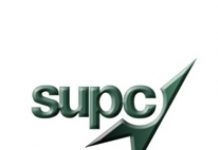Higher education institutions should develop their own approach to becoming ‘intelligent customers’ of suppliers, which will involve investment in new skills, changes in culture and raising the profile of procurement and supply professionals. So says Dr Dharm Kapletia of Bristol Business School, University of the West of England (UWE) who wants to hear about the experiences of institutions and suppliers with outsourcing.
Whilst other public sector organisations within areas such as health and defence have been fast implementing new business models, UK Higher Education Institutes (HEIs) appear to be at an earlier stage of the process and are just beginning to discover the untapped benefits of implementing new ‘business models’ with external partners; thus creating a need for building an evidence base of good practice and guidance.
Our initial investigation of the HE sector reveals the potential of some compelling approaches that can deliver benefits to HEIs. These include social enterprise, wholly owned subsidiary, shared services, offshore services, and strategic partnering with private sector suppliers.
Research project: ‘Outsourcing as a route to efficiency and effectiveness in higher education’
Our research project aims to provide a practical guide for HEIs wishing to explore and evaluate a broad spectrum of outsourcing business models – as a route to achieving greater efficiency and effectiveness benefits.
The project will provide a toolkit to support this process, including route maps, decision trees, practical exemplars, success factors and issues. The focus will be on outsourcing models that are directly relevant to HEIs and their application to different services and activities.
Whereas past studies have tended to be limited to the broad rationale for outsourcing, our ongoing discussions with HEI managers reveal a growing appetite for assessing the potential of new business models and the real need to develop practical insights and prescriptive frameworks and tools that can assist with decision-making within HEIs.
Help contribute to our research
Your views and expertise are vital to the success of this project. We are seeking to hear from:
- Higher Education staff faced with making decisions or assessments about outsourcing
For HEIs, we seek to understand the rationale, scope and challenges of outsourcing, as well as how benefits are identified and realised.
- External contractor or supplier staff who are experienced in delivering services in partnership with large institutions
For external contractors/suppliers, we seek to capture business practices (processes, tools, techniques, and data) related to determining (pre-contract) and delivering (post-contract) efficiency and effectiveness benefits to their clients. We are especially interested to work with staff to generate exemplar case studies, which discuss the business model opportunity, as well as ‘lessons learned’ and expected/realised outcomes.
- Other independent institutions that are willing to share their expertise in the area of outsourcing and developing an intelligent customer capability
From February 2013, we have been carrying out (typically 1 hour) research interviews with UK HEI staff across the UK, and with a variety of external contractor organisations such as MITIE, Capita, PricewaterhouseCoopers, UNITE Group, and Tribal.
Going forward – we need further support and participation from sector managers and outsourcing experts to develop a comprehensive evidence base, set out the range of options and engage potential beneficiaries of this work.
We are also drawing on the expertise of institutions such as the National Outsourcing Association (NOA) to help address the knowledge gaps in HEIs. With the assistance of the NOA, we ran a workshop “Models for Managing HE Sourcing Strategy” on 18 April 2013.
Download the survey
Background
Building on the Government’s Operational Efficiency Programme (HM Treasury, 2009) and work by PricewaterhouseCoopers (PwC, 2011), the Diamond Report (UUK, 2011) identified a continuum of activities through which HEIs can deliver efficiencies and support organisational change, running from simplification and standardisation at one end of the spectrum through to shared services and outsourcing at the other.
Studies published by Policy Exchange in 2010 suggest outsourcing can be successfully employed by universities as a means to deliver savings, with projected savings of 30% on goods and services spend.
Whilst cost reduction is a clear motivation, the Diamond Report and other firms and institutions also argue the benefits of improving service quality and supporting core strategies. In this context, the Cabinet Office points out the public sector reform debate has moved on from what was perceived as being a binary choice of either in-house or outsourced arrangements.
The focus has shifted towards how to achieve superior service outcomes using fundamentally different models or ways of working, in collaboration with institutional and private sector partners.
Findings and dissemination
We are working closely with research participants to develop case exemplars of outsourcing good practice, as well as tools that are specifically tailored for use in the HE environment. We will start posting our materials on the Efficiency Exchange website shortly. Our pilot tools include an outsourcing decision tree, a maturity framework and sourcing team audit.
This research will run until December 2013 and is funded by the Innovation Transformation Fund (ITF)
If you are interested in our research or wish to participate, please contact us on 0117 328 2297 or by email:
Dr Dharm Kapletia (dharm.kapletia@uwe.ac.uk) – Senior Research Fellow
Dr Wendy Phillips (wendy.phillips@uwe.ac.uk) – Academic lead







